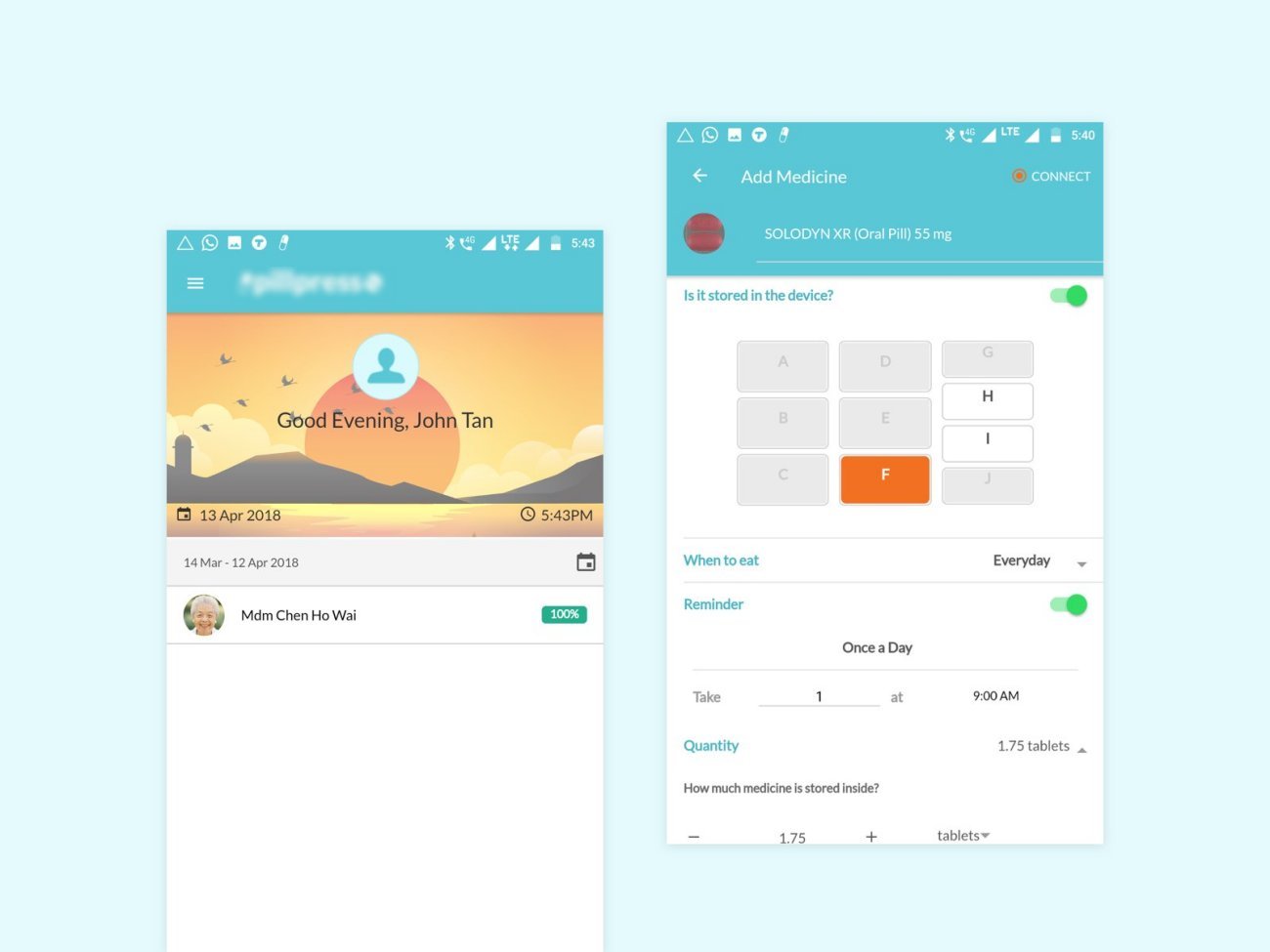Bluetooth-Enabled Medicine Reminder Mobile Application with IoT Integration
- Industry
- Healthcare
- Technologies
- Ionic, Node.js, MQTT, MongoDB, Angular, ExpressJS, AWS
Case Study: Medicine Reminder App with Bluetooth Device Connectivity

Summary
A healthcare technology startup, specializes in crafting innovative solutions to improve patient outcomes and medication adherence. They aimed to assist individuals managing complex prescription regimens by developing a complete medication reminder system. This system would merge a mobile app with a Bluetooth-enabled smart device, allowing patients to store their medicines in the device and receive timely alarms for each dosage.
Challenge
As we worked to create something remarkable, we faced some challenges along the way.
Node.js Integration
- Integrating Node.js into the mobile app for seamless communication with the IoT device posed initial challenges, as ensuring real-time connectivity and data exchange required careful development.
IoT Device Compatibility
- Achieving compatibility between the mobile app and the IoT device was a significant hurdle. Ensuring that the app could effectively communicate and control the device's functionalities was a complex task.
Data Security
- Maintaining stringent data security standards was paramount. Ensuring the safe storage of patient medication information and alarm schedules on the IoT device while protecting against unauthorized access was a critical challenge.
User-Friendly Design
- Designing a user-friendly interface for both the mobile app and the IoT device was challenging. The aim was to make medication management accessible and intuitive for all users, including those less familiar with technology.
Battery Efficiency
- Maximizing the battery life of the IoT device while maintaining continuous Bluetooth connectivity was a delicate balance. Optimizing power consumption to ensure the device could last for extended periods without recharging was a priority.
Scalability
- Preparing the system for potential future enhancements and scalability was another challenge. Ensuring that the architecture could accommodate additional features and a growing user base without compromising performance was essential.
Solution
In order to solve medicine adherence difficulties, the business set out to develop a Medicine Reminder smartphone application, which combines a user-friendly smartphone interface with a Bluetooth-enabled smart device.
App Development
- User-Friendly Interface: The app was designed to be intuitive and user-friendly, catering to users of all ages.
- Medication Profile Setup: Users could input their medication details, dosages, schedules, and any special instructions.
- Reminder Alerts Customizable reminder notifications were sent to users based on their medication schedules.
- Medication History: The app maintained a history of medication adherence, allowing users and healthcare providers to track adherence patterns.
Bluetooth Device Integration
- Smart Medication Dispenser: The Bluetooth-enabled smart device, in collaboration with the Medicine Reminder App, dispensed medications according to the programmed schedule, utilizing MQTT for efficient communication.
- Wireless Communication: The Medicine Reminder App seamlessly communicated with the IoT device via MQTT protocol, enabling synchronization of medication schedules and dosages.
- Real-time Tracking: The device transmitted data to the Medicine Reminder App, facilitating real-time updates of medication adherence status, all thanks to MQTT integration.
Data Security and Privacy
- Data Encryption: Stringent encryption protocols were implemented to ensure the security of user medication data.
- Privacy Controls: Users had control over their data and the option to share adherence information with healthcare providers or family members.
User Engagement
- Gamification: The app incorporated gamification elements to incentivize adherence, such as earning rewards for consistent medication intake.
- Educational Content: The app provided information about each medication and its importance, empowering users to take ownership of their health.
Feedback and Iteration
- User Testing: The startup conducted extensive user testing to refine the app's usability, features, and Bluetooth connectivity.
- Continuous Improvement - Regular updates and feature enhancements were rolled out based on user feedback and changing user needs.
Results
The development of the Medicine Reminder App, integrated with a Bluetooth-enabled smart device, demonstrated the potential of technology to address medication non-adherence challenges. The combined solution improved medication adherence rates, empowered users to manage their health more effectively, and provided healthcare providers with valuable insights for personalized care. The success of this innovative approach highlighted the impact of healthcare technology on patient outcomes and medication management.
- Improved Adherence: Users reported higher adherence rates due to accurate reminders and the convenience of the smart medication dispenser.
- Real-time Monitoring- Healthcare providers and family members could remotely monitor adherence, intervening if necessary.
- Positive User Experience: The app's user-friendly interface and seamless Bluetooth integration contributed to a positive user experience.
- Empowerment: Users felt empowered and informed about their medications, leading to better health outcomes.
- Data-Driven Insights: Healthcare providers gained insights into patient adherence patterns, aiding treatment decisions.
Technologies and Tools
With a strategic blend of the MEAN stack and DigitalOcean for hosting, we embarked on a mission to craft a digital masterpiece. Here are the tools we utilized:
Client Feedback
“I am immensely proud of the remarkable collaboration with the team on the Medicine Reminder Application project. Their dedication to innovation and patient well-being is truly commendable. The user-friendly app and seamless IoT integration have not only met but exceeded our expectations. This solution is a testament to their expertise and commitment to improving healthcare outcomes. I couldn't be more thrilled with the impact it has had on our mission. Thank you for a job exceptionally well done.”